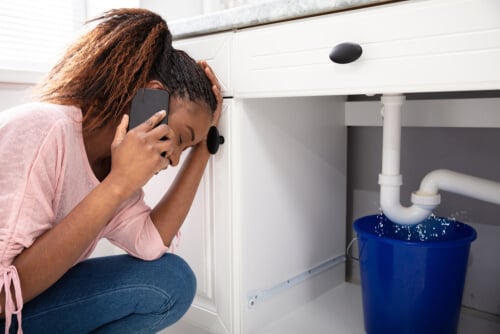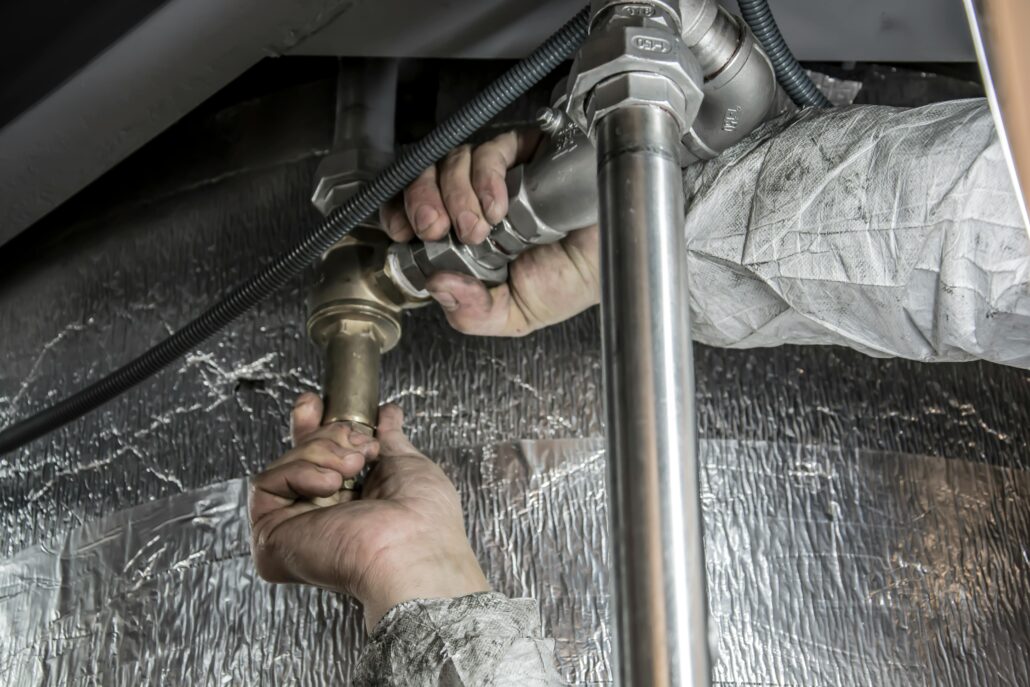Emergency Plumbing Costs Explained
 lumbing problems have an uncanny knack for occurring at the worst possible times. Picture this: it’s a cold winter night, and suddenly, a pipe bursts. Or it’s Thanksgiving Day, and your kitchen sink clogs just as you’re preparing a meal for a house full of guests. These situations are not only inconvenient—they can be costly. Understanding emergency plumbing costs is essential for every homeowner who wants to be prepared for the unexpected.
lumbing problems have an uncanny knack for occurring at the worst possible times. Picture this: it’s a cold winter night, and suddenly, a pipe bursts. Or it’s Thanksgiving Day, and your kitchen sink clogs just as you’re preparing a meal for a house full of guests. These situations are not only inconvenient—they can be costly. Understanding emergency plumbing costs is essential for every homeowner who wants to be prepared for the unexpected.
In this article, we’ll dive deep into what makes emergency plumbing so expensive, typical price ranges for common services, and proactive steps you can take to avoid financial surprises when plumbing problems strike.
What Constitutes a Plumbing Emergency?
Before we discuss costs, it’s important to define what qualifies as a plumbing emergency. Not all plumbing issues require immediate attention—some can wait until regular business hours, saving you a bundle in after-hours fees.
Here are examples of true plumbing emergencies:
A burst pipe or major leak causing active flooding
A sewer backup or clogged main drain line
A water heater failure in cold weather
Frozen pipes that may burst
No access to running water in the home
Overflowing toilets or clogged fixtures in a single-bathroom home
 Issues like a slow-draining sink, a leaky faucet, or low water pressure are usually not considered emergencies unless they worsen suddenly. When in doubt, contact a local plumbing company to evaluate the urgency of your situation.
Issues like a slow-draining sink, a leaky faucet, or low water pressure are usually not considered emergencies unless they worsen suddenly. When in doubt, contact a local plumbing company to evaluate the urgency of your situation.
Why Emergency Plumbing Costs More
Emergency plumbing costs more than regular plumbing services for several reasons. It’s not just about fixing the problem—it’s about the time, availability, and effort it takes to deliver fast and effective solutions.
- After-Hours and Holiday Premiums
Plumbers typically work standard hours—usually 8 a.m. to 5 p.m., Monday through Friday. When a homeowner calls for service on a weekend, holiday, or during the night, the plumber must leave their off-hours schedule behind. That often involves overtime pay and higher service fees.
Emergency response rates can be 1.5 to 3 times the regular hourly rate, depending on the plumbing company and the time of day.
- Immediate Response and Travel Costs
Time is critical during a plumbing emergency. You’re paying for a technician to travel quickly to your location—often bumping you ahead of scheduled appointments. Some plumbers may also charge additional fees if they need to travel long distances or if traffic and access are an issue.
- Complex Repairs Under Pressure
Emergency plumbing issues are typically more complex than routine fixes. Whether it’s locating a hidden leak behind a wall, thawing and repairing frozen pipes, or replacing a broken water heater, these jobs may require specialized tools and fast decision-making. That added complexity contributes to higher labor and equipment costs.
- Potential Damage Control
In many cases, the plumber must mitigate or prevent water damage while addressing the root problem. This could mean working quickly to shut off water valves, pump out water, or secure exposed pipes. The additional time and resources used for damage control can drive up the overall cost.
Factors That Influence Emergency Plumbing Costs
Beyond the nature and timing of the issue, several additional factors play a role in determining the total bill:
- Location: Urban areas often have higher rates due to greater demand and overhead costs.
- Severity of the problem: A minor leak may take an hour to fix, while a full pipe replacement could take a full day or more.
- Accessibility: If your pipes are behind walls or under concrete, additional demolition and restoration work may be required.
- Materials and parts: Emergency replacements, especially of high-end components, can increase the cost.
- Time and labor: Long repair jobs billed hourly will be significantly more expensive during emergencies.
How to Avoid Emergency Plumbing Expenses
While not all emergencies are preventable, homeowners can take proactive steps to reduce the likelihood—and cost—of a crisis.
- Perform Regular Plumbing Maintenance
Schedule annual inspections with a licensed plumber to identify worn-out fixtures, corrosion, or signs of leaks. Cleaning out your drains, checking your water pressure, and flushing your water heater are all preventive measures that help avoid future issues.
- Winterize Your Plumbing
In colder climates, frozen pipes are a leading cause of emergency plumbing calls. Insulating pipes, keeping cabinets open, and letting faucets drip during freezing weather can prevent serious damage.
- Learn How to Shut Off the Water Supply
In the event of a leak, turning off your home’s main water valve can stop flooding and save thousands in water damage and repair costs. Make sure every adult in the household knows where the valve is and how to use it.
- Keep Emergency Contacts Handy
Don’t wait for a plumbing disaster to search online for a local plumber. Research trusted professionals in your area and keep their contact information accessible. Look for those with 24/7 emergency services and good reviews.
- Get Multiple Estimates (When Possible)
If your emergency isn’t immediate—for example, a slow water heater failure—consider calling more than one plumber for an estimate. Even during emergencies, a few minutes of research can result in significant savings.

Should You Buy a Plumbing Service Plan?
Some plumbing companies offer service or maintenance plans for an annual fee. These plans typically include:
Scheduled maintenance visits
Priority service during emergencies
Discounted labor and parts
Waived emergency call-out fees
If you live in an older home or have frequent plumbing issues, enrolling in a plan could pay for itself over time.
Be Prepared and Stay Informed
Emergency plumbing situations can be both stressful and expensive, but they don’t have to be financially devastating. By understanding why emergency plumbing costs are higher, what services typically cost, and how to minimize the risk of emergencies, you can protect both your home and your wallet.
Plumbing issues are an unavoidable part of homeownership. But with preparation, a basic knowledge of your plumbing system, and a trusted plumber on call, you can handle emergencies with confidence and clarity.